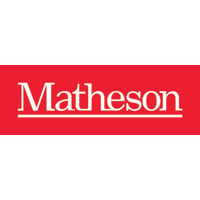

General Counsel and Company Secretary | AmTrust International Underwriters DAC



Jonathan O’Brien
General Counsel and Company Secretary | AmTrust International Underwriters DAC
What are the key projects that you have been involved in over the past 12 months?
Over the past 12 months, the legal team has experienced an exceptionally busy and productive period, marked by a series of high-impact projects across multiple areas of strategic importance to the business. We have supported an elevated level of transactional activity, including complex and unique cross-border insurance deals, delivering to tight timelines whilst meeting regulator’s expectations.
A major area of focus was the establishment and deepening of strategic cross-border partnerships with several household names, further enhancing the organisation’s global footprint.
In parallel, we played a key role in advancing a number of legal, regulatory and capital initiatives, ensuring that the business is well positioned to execute on its strategic and operational objectives.
Throughout this period, the Company Secretarial function continued to enhance the standard of corporate governance in Ireland, maintaining compliance and ultimately enabling effective decision-making at board and senior management levels.
This diverse and high-volume workload reflects the legal team’s critical and trusted role within the organisation and demonstrates our ability to deliver commercially sound, risk-aware advice in a dynamic and fast-paced environment.
What do you think are the most important attributes for a modern in-house counsel to possess?
A modern in-house counsel must strike a careful balance between legal expertise and commercial acumen. While technical legal skills remain essential, today’s in-house lawyers are increasingly expected to act as strategic partners to the business — bringing sound judgment, pragmatism, and a deep understanding of the commercial landscape in which the organisation operates.
Key attributes include agility and adaptability, particularly in responding to fast-evolving regulatory and market conditions. Strong communication skills are also critical — translating complex legal issues into clear, actionable advice for non-legal stakeholders. Moreover, the ability to build trusted relationships across all levels of the business, and to lead with integrity and emotional intelligence, is vital in helping to shape good governance and risk-aware culture.
Finally, modern in-house counsel must be forward-thinking, actively anticipating legal developments and positioning the business to respond proactively rather than reactively.
Based on your experiences in the past year, are there any trends in the legal or business world that you are keeping an eye on, of which you think other in-house lawyers should be mindful?
One of the most prominent is the increasing scrutiny from regulators, both domestically and internationally, around operational resilience, conduct, risk management and sustainability commitments. Legal teams are playing a more visible role in embedding these principles into governance frameworks, contractual arrangements, and regulatory disclosures.
Another trend is the acceleration of digital transformation across the financial and insurance sectors. This includes the growing use of AI and automation, which presents both opportunities and legal risks — particularly in relation to data protection, algorithmic accountability, and consumer fairness. In-house counsel must keep pace with these changes to provide effective oversight and support innovation responsibly.
Finally, geopolitical developments and the resulting legal and regulatory fragmentation across jurisdictions have underscored the importance of cross-border legal insight. For global or internationally connected firms, in-house legal teams must be alert to diverging regulatory approaches and ensure that compliance structures remain coherent yet adaptable.
Remaining proactive in these areas is key to helping the business stay resilient, agile, and compliant in an increasingly complex environment.